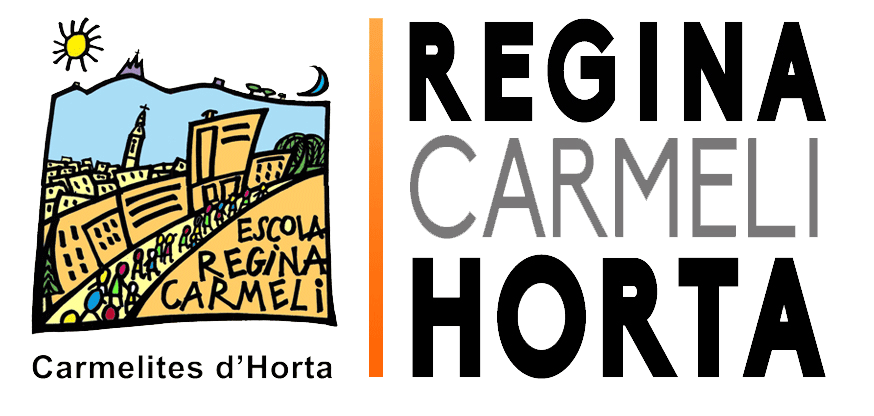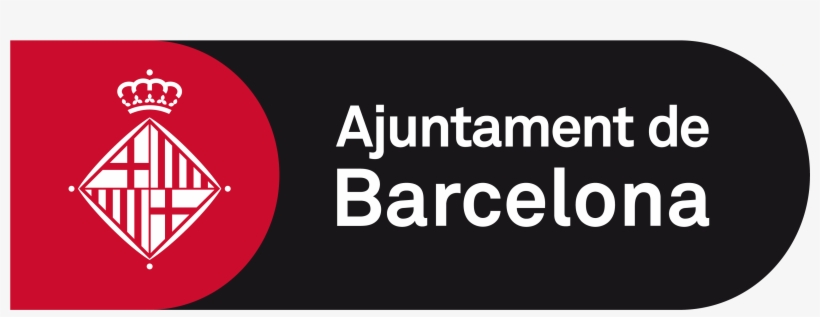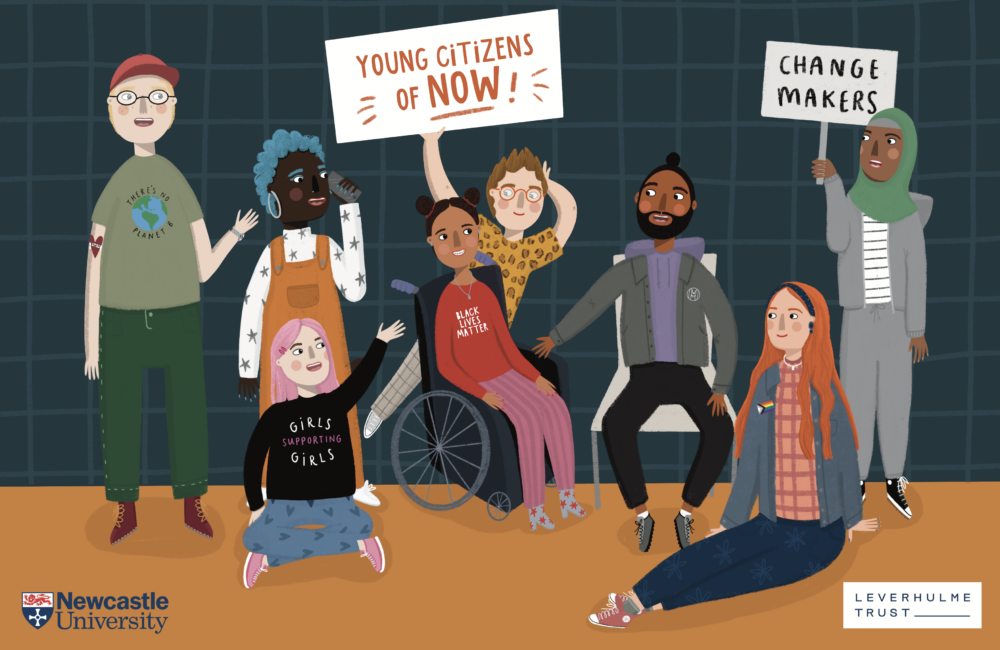Escola Regina Carmeli, Horta, Barcelona (Regina Carmeli School)
Case Study – L’Audiència Pública als Nois i Noies de Barcelona (The Public Hearing for the Girls and Boys of Barcelona)
Run by: Ajuntament de Barcelona
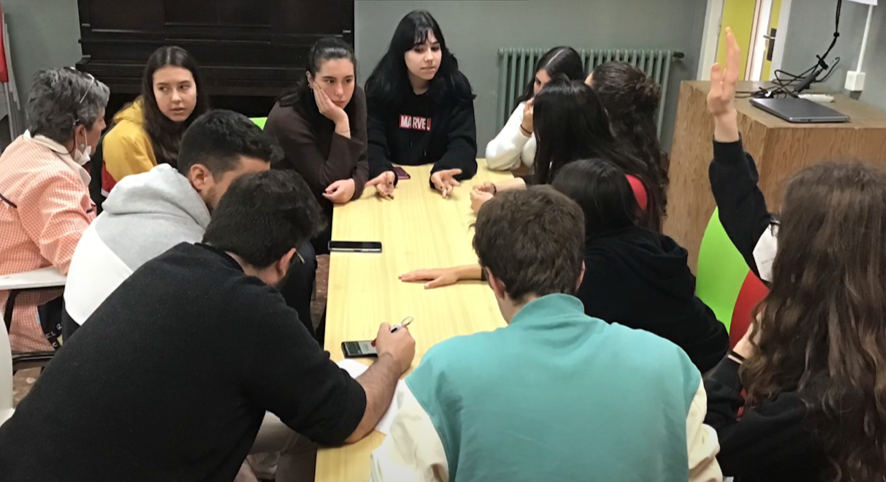
The case study was chosen due to:
i) its promotion of participatory practices in political education for children in Barcelona, and
ii) its recognition of the positive impact that more reciprocal urban learning contexts (for policymakers, professionals, children and young people) can have on the development of inclusive, fairer places.
What is The Public Hearing for the Girls and Boys of Barcelona?
Since 1994, the public hearing formula has promoted a model of democratic participation for thousands of children. In 2019-2020 the project involved 1,800 children from 37 educational centres in the 10 districts of the city.
The active participation of children and young people in the place where they live is promoted in Barcelona through education. The Public Hearing is a city-wide participatory process; a political citizenship course that raises children and young people’s awareness of their rights and duties as citizens of Barcelona and enables them to actively participate in this citizenship process. The city recognises the vital importance of giving children and young people the opportunity to engage in active citizenship and educating them in the practice of civic participation.
XXV Public Hearing for the Boys and Girls of Barcelona: Educating in Equality
The Public Hearing for the Young People of Barcelona is a form of participation through which young citizens aged between 11 and 17 (year 6 in primary schools and throughout high schools, including special education schools) are invited to collaborate to develop policy proposals for change. With a feminist theme, the theme of the XXV Public Hearing for Young People in 2019 – 2020 was “Educating in Equality.”
Throughout the 6-month process (October – April), teaching staff receive advice from experts in the Barcelona team on civic participation in Barcelona, supported by a range of course materials. Young people debate and discuss key issues that are important to them, with the aim of reaching consensus on policy proposals and the commitments to policy change that they would like to see from their politicians. After a collective reflective process, the young people present their conclusions in public hearings, which are chaired by the district councils and the mayor.
From 2020-2021, The Public Hearing for the Boys and Girls of Barcelona has been developed and replaced by The Participatory Process of Adolescent Citizenship of Barcelona.
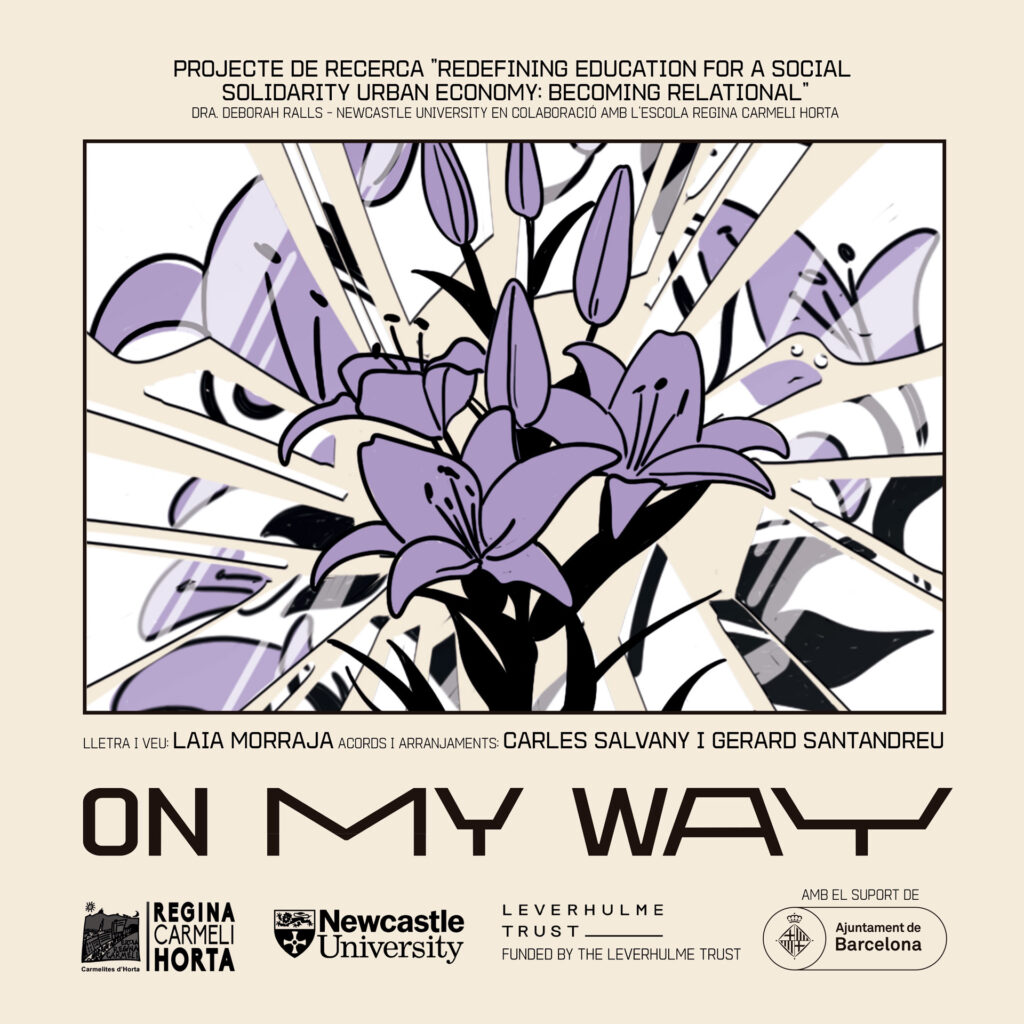
Barcelona Young People’s Project: You Are Not Alone & On My Way (short film and song)
Priscila, Laia, Carmen, Carles, Berta, Nerea, Gerard, Lucia and Ainara, a group of teenage students from Regina Carmeli Horta school, and their teachers, Rosa Maria and Miquel, were part of the XXVth Audiencia – the theme was educating for equality.
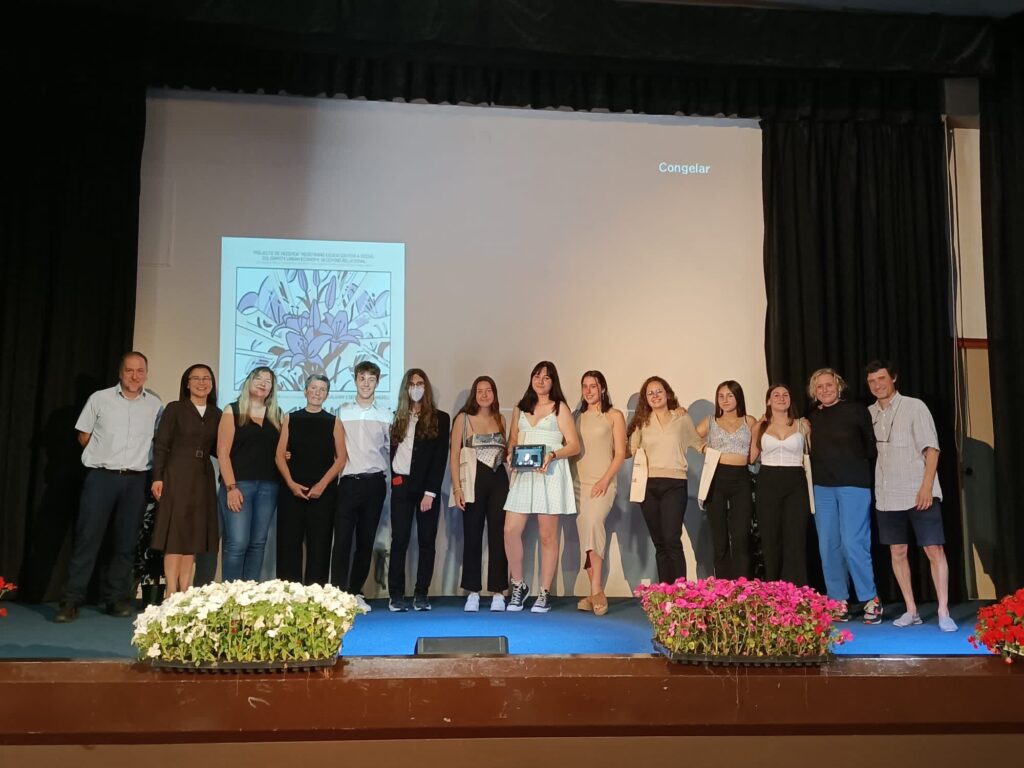
In their work You Are Not Alone – No Estas Solo – and On my Way, the young people reflect on what they had learnt from the Audiencia and give their ideas on how education can help make the city a fairer place. They focus on the need for cities to enable young people to be educators themselves – to connect to share their experiences of ‘becoming their own person’ and to combat sexism, LGBTQ+ prejudice and gender/sexuality-related violence.
Priscila, Laia, Carmen, Carles, Berta, Nerea, Gerard, Lucia and Ainara worked together to write, compose and perform the song “On My Way” to share their experiences as young people – about being ‘on your way’ to becoming your own person, having the confidence and support to be who you really want to be. They wanted to show how enabling young people to share these experiences can help make their city a fairer place.
In their short film “You Are Not Alone”, the students wanted to show real everyday problems that they say cannot be ignored, such as sexism, homophobia, racism that they experience in school, in the local neighbourhood, in the city, in their families…everywhere.
“We would like that everyone could be reflected in this short film, not only for having suffered a similar situation, but also to those who have seen them. And it will be fantastic if the hidden characters of these acts would reflect and change their attitude in the future.
We want to tell all victims YOU ARE NOT ALONE.
We hope that you like the short film and we are sure that the song will reach your heart.
But which are our ideas and main messages about how education can help to make our city fairer and safer?
- To be able to express our ideas and feelings without fear and with respect for others.
- To help by sharing our prejudices, problems, hopes and desires with others.
- To try to educate respectful people, without differentiating by sexual orientation, culture, race…in all areas.
- To teach adults with stereotyped ideas to change their habits. To use education to try to support them to be a better person.
- To highlight discriminatory acts of aggression
- To keep track of the aggressors and develop change.
- To forget expressions such as it has always been…, seen, said.
We know it is not something that can be changed tomorrow; it is a long project, but all together we can achieve a better life.
School: Escola Regina Carmeli, Horta, Barcelona
Students: Ainara Díaz, Nerea Galán, Carmen Granados, Carles Salvany, Gerard Santandreu, Lucía Villa, Laia Morraja, Priscila Pereira, Mariam Ortega and Berta Dorado from 4ESO
Teachers: Rosa Maria López and Miquel Molinas
Institut Municipal d’Educació Ajuntament de Barcelona: Jose Cano Escribano
Pla Estel: Arnau Boix i Pla
Creatives: Isolte Studio
Overview of the city
Barcelona, the capital of Catalonia, has more than 1,635,000 inhabitants (2021-22). It is the core of a metropolitan region of about 2,500 square kilometres, with approximately 5,000,000 inhabitants, and represents 63.7% and 10.4% of the Catalan and Spanish population, respectively.
A Social Solidarity Economy
“On 23 June 2021 Barcelona launched the City Agreement for the Barcelona 2030 Social and Solidarity Economy Strategy (#ESSBCN2030 Agreement).
The Social and Solidarity Economy Strategy for Barcelona 2030 main objective is to grow and strengthen the fabric of the Social Solidarity Economy, to contribute to the socio-economic development of the city and its citizens, and from now on, respond to the socio-economic crisis through the reactivation and the strengthening of the Social and Solidarity Economy.
Faced with the consequences of the pandemic, the Strategy also wants to be a call for public policies to guide the economic recovery towards the common good, the collective dimension and solidarity. The public sector has regained the central socio-economic role in the context of the health, social and economic emergency.
The Strategy envisions a city model where citizens have access to basic goods and services for life. Where well-being will increase and socio-economic inequalities will be reduced. Where the relocated economy is democratic.
“Barcelona City Council is fostering the establishment of economic structures in the city that are more social and supportive, by consolidating and nurturing the already thriving network of cooperative, social and solidarity economy organisations in the city and promoting new initiatives.” – Economia Social I Solidaria, 2023
Education and schooling in Barcelona
Barcelona is an educating city. In 1990 the Charter of Educating Cities was held in Barcelona and the International Association of Educating Cities was founded. Barcelona is the headquarters of the world secretariat of the International Association of Educating Cities, which brings together more than five hundred cities from all over the world.
Barcelona believes “that we must deepen the transformation of education in cities based on four principles: an education located territorially in educational neighbourhoods; politically oriented towards equity, non-segregation and real equality of educational opportunities; well hybridised with the spheres of culture, technology and science, and linked to a network of institutions and actors in the territory, to diagnose and face shared needs and problems together…
We have schools that teach in the street, in parks or in cultural facilities. Museums and libraries offer school activities…and commit to the challenge of filling the “cultural backpacks” of all students. Likewise, school communities use the urban environment around their educational centre and begin to think about its design and uses. In short, new links and practices have been created that blur and permeate the borders between education, inside and outside the school.” – An Educating City
Video
